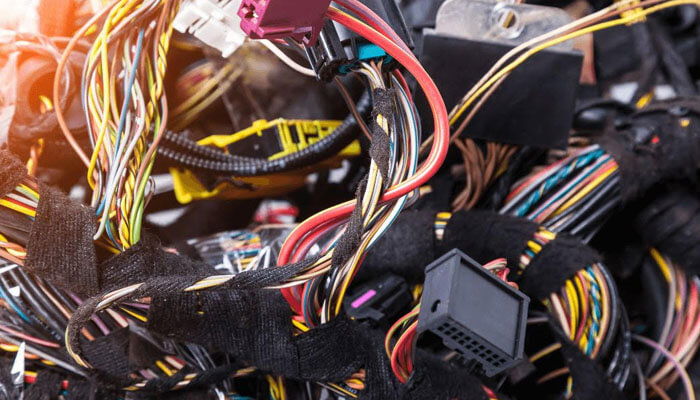Selecting the right is a crucial step in ensuring the safety, efficiency, and longevity of your electrical systems. For reliable and durable solutions, try Cembre electrical connectors, known for their precision and performance in a variety of electrical applications.
What Are Electrical Connectors And Why Are They Essential?
Electrical connectors are devices used to join electrical circuits, allowing electricity to flow safely and efficiently. They play a crucial role in ensuring reliable connections between wires, terminals, and other components in electrical systems.
Choosing the right one is essential for preventing failures, ensuring safety, and maintaining optimal performance in your project.
Exploring The Different Types Of Connectors
There are several types of connectors, each suited to different applications:
1. Wire Connectors:
These electrical connectors are used to join two or more wires together. They are commonly used in home wiring projects and are available in twist-on, push-in, and clamp-on styles. Wire connectors are easy to use and offer secure, reliable connections, especially in residential applications;
2. Terminal Blocks:
Terminal blocks provide a secure point for connecting multiple wires. Often used in industrial and control systems, terminal blocks help organize connections and ensure secure, easily accessible terminals;
3. Plugs and Sockets:
Plugs and sockets are essential for connecting electrical devices. They are commonly used in both household and industrial applications, allowing for easy connection and disconnection of appliances and equipment. These connectors come in various configurations to handle different voltage and current ratings;
4. Crimp Connectors:
Crimp connectors are used with a crimping tool to create a secure connection between a wire and a terminal. They are commonly used in automotive and industrial applications, providing a strong, permanent connection without the need for soldering;
5. Soldered Connectors:
Soldering involves melting solder to join wires or components together. Soldered connectors provide a strong, reliable connection, and they are commonly used in electronics and other applications that require precise, durable connections.
Key Factors to Consider When Selecting a Connector
When choosing the right electrical connector for your project, there are several important considerations to keep in mind. First, the electrical rating of the connector is crucial. It’s important to select a connector that can handle the required voltage and current for your system.
The material of the connector also plays a significant role in its durability and performance. Common materials include copper and aluminum for conductors, and plastics or rubber for insulation.
The environment in which the connector will be used is another key factor. If the connector will be exposed to extreme temperatures, moisture, dust, or chemicals, it’s essential to choose one designed to withstand these conditions.
The connection method is also important to consider. Some connectors require crimping, soldering, or twisting, and each method may require specialized tools. Make sure that the necessary tools are available and compatible with the type of connector you plan to use to avoid installation issues.
Lastly, compatibility with other components in your system is vital. Ensure that the connector’s size, shape, and type match the requirements of your project and will fit seamlessly with the wires or other components being used.
Understanding Electrical Ratings and Standards
Every connector is rated for specific voltage and current capacities, which dictate its safe operating limits. Voltage ratings refer to the maximum voltage the connector can safely handle, while current ratings indicate the maximum current the connector can carry.
Matching Connectors to Applications
Different projects and industries require specific types of electrical connectors to ensure optimal performance. In automotive applications, crimp connectors are commonly used because they provide secure, vibration-resistant connections. Plugs and sockets are also widely used for modular connections in vehicles.
For home wiring projects, wire connectors such as twist-on or push-in types are often used. They are easy to install and provide secure connections for lower-voltage systems. Lastly, in electronics, soldered connectors are commonly used for precise, reliable connections in small, compact spaces. Crimp connectors are also used in applications that require a more robust connection.
Materials Matter: Choosing the Right Connector Composition
The material of the connector affects its performance and longevity. Here are some common materials:
1. Plastic: Plastic is often used for insulating connectors because it is lightweight and cost-effective. It provides electrical isolation and is commonly used for low-voltage applications;
2. Metal: Metals like copper and aluminum are used for the conductive parts of connectors due to their excellent electrical conductivity. Copper is especially favoured for high-performance applications because of its superior conductivity and resistance to corrosion.
3. Rubber: Rubber is typically used for weather-resistant or waterproof connectors. It provides flexibility and helps protect the connector from environmental elements, making it ideal for outdoor or industrial use.
When choosing materials, consider the environmental conditions and electrical performance required for your project. For example, in high-temperature environments, metals with high thermal conductivity and plastics that can resist heat deformation are ideal.



